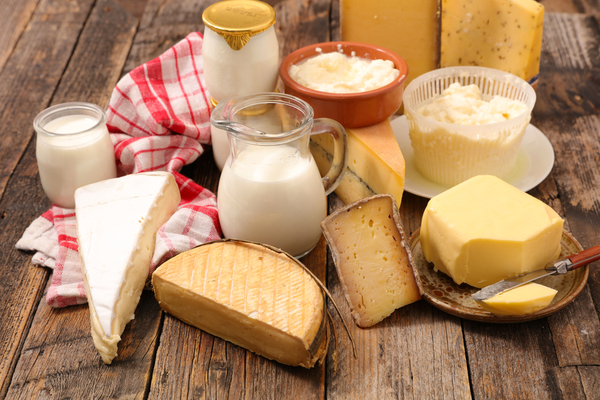Why do Jews Eat Milk on Shavuot?

If there is one thing that everyone knows about the Jewish holiday of Shavuot, it is that Jews eat a lot of dairy.
Taking a step back, like one of the shalosh gifts or three biblical pilgrimage festivals, Shavuot actually celebrates two things:
The gift of the Torah on Mount Sinai. After the Exodus from Egypt, from the second day of Easter, the Torah commands the Israelites to count 49 days (Leviticus 23:15). On the fiftieth day, the Israelites must observe Shavuot.
The wheat harvest. Jewish Passover was the period of the barley harvest, followed by a seven-week period (corresponding to the period of counting omer) which culminated in the harvest of wheat on Shavuot. During the time of the Holy Temple, the Israelites went to Jerusalem to make an offer of two loaves of bread from the wheat harvest.
Shavuot is known as many things in the Torah, whether it's the Festival or the Festival of the weeks, the Harvest Festival or the First Fruit Day. But let's go back to the cheesecake.
Considering a popular hypothesis is that most Jews are lactose intolerant ... why exactly do Jews consume so much milk on Shavuot?
A land that flows with milk ...
The simplest explanation comes from Song of Songs (Shir ha'Shirim) 4:11: "Like honey and milk [the Torah] is under your tongue."
Similarly, the land of Israel is called "a land that flows with milk and honey" in Deuteronomy 31:20.
In essence, milk serves as a livelihood, the source of life and honey represents sweetness. So Jews all over the world prepare milk-based delicacies such as cheesecake, blintzes and cottage cheese pancakes with fruit compote.
Cheese Mountain!
Shavuot celebrates the gift of the Torah on Mount Sinai, also known as Har Gavnunim (הר גבננים), which means "mountain of majestic peaks".
The Hebrew word for cheese is gevinah (גבינה), which is etymologically related to the word Gavnunim. In that note, the gematria (numerical value) of gevinah is 70, which binds to popular understanding that there are 70 faces or facets of the Torah (Bamidbar Rabbah 13:15).
But don't get me wrong, we don't recommend eating 70 slices of sweet and savory cheesecake by Israeli-Israeli chef Yotam Ottolenghi with cherries and crumble.
Kashrut's theory
There is a theory that since Jews only received the Torah on Mount Sinai (the reason why Shavuot is celebrated), they did not have the laws on how to slaughter and prepare meat before this.
So once they received the Torah and all the commandments on the ritual massacre and the separation law "don't cook a baby in breast milk" (Exodus 34:26), they didn't have time to prepare all the animals and their dishes, so they ate milk.
If you're wondering why they didn't take the time to slaughter the animals and make their dishes more kosher, the answer is that the revelation to Sinai took place on Shabbat, when those acts are prohibited.
Moses the dairy man
In much the same way as Gevinah, previously mentioned, there is another gematria which is cited as a possible reason for the heavy consumption of dairy products on Shavuot.
The gematria of the Hebrew word for milk, chalav (חלב), is 40, so the reasoning quoted is that we eat milk on Shavuot to remember the 40 days that Moses spent on Mount Sinai receiving the whole Torah (Deuteronomy 10:10).